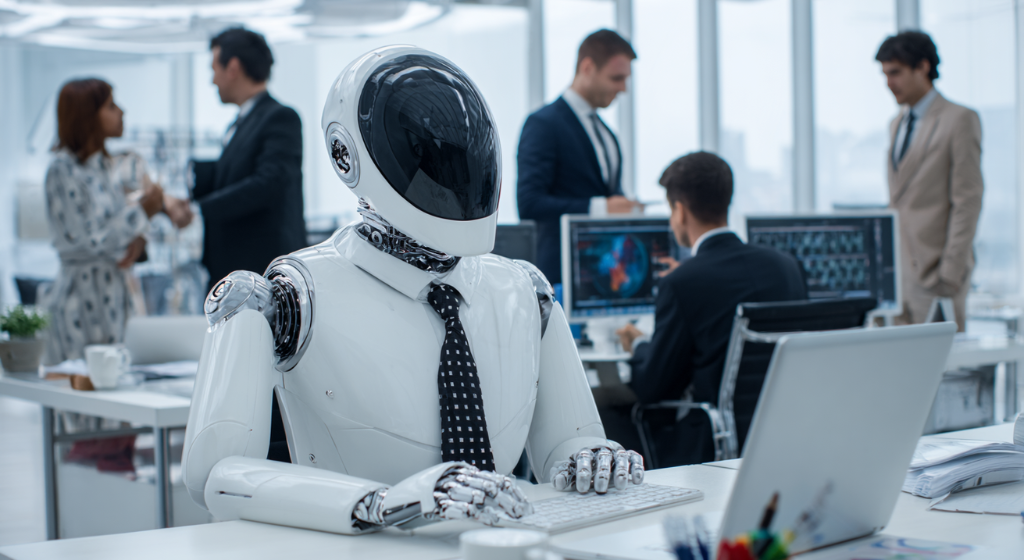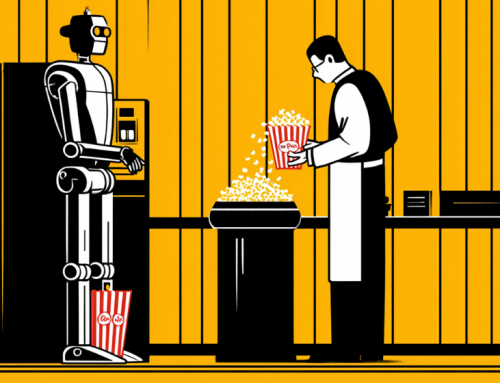
As AI disrupts the workforce, CEOs are finally acknowledging its role in layoffs, with companies pivoting to precision hiring, entry-level developers seeing shrinking opportunities, and workers scrambling to upskill in a rapidly evolving job market. (Source: Image by RR)
Younger Developers Face Steep Climb in AI-Dominated Hiring Landscape
As generative AI continues to reshape the tech industry, CEOs are becoming increasingly candid about its disruptive impact on employment. Fiverr CEO Micha Kaufman recently sent a blunt internal memo acknowledging AI’s rapid advancement and its inevitable effect on the workforce, including his own role. Kaufman, as noted in forbes.com, emphasized that AI levels the playing field by making simple tasks trivial, hard tasks easier, and once-impossible tasks merely difficult. In his view, workers who fail to adapt will be left behind—an assessment echoed by employees questioning their job security.
Recent employment data and CEO statements reflect a stark shift from optimistic messaging about AI augmenting workers to the current reality of layoffs and hiring freezes. Stanford researcher Ruyu Chen noted a decline in entry-level developer employment since ChatGPT’s rise, driven by a trend toward “precision hiring” of superstar talent. Tech CEOs like Dario Amodei (Anthropic), Andy Jassy (Amazon), and Tobi Lutke (Shopify) have all signaled a future where AI reduces the need for certain roles. IBM, Duolingo, Klarna and Microsoft have either replaced workers with AI systems or cited automation as a justification for downsizing.
Still, the role of AI in layoffs is nuanced. A Challenger, Gray and Christmas report found that of over 286,000 layoffs in 2024, only 75 were explicitly attributed to AI. Companies also face economic pressures like overhiring during the pandemic or political uncertainties like tariff shifts. Moreover, many employees are informally using consumer AI tools at work, making it difficult to quantify AI’s true impact on productivity. Outside of tech, the demand for engineers is actually growing in sectors like finance and healthcare, as they begin integrating AI systems into operations.
Not all AI deployments have yielded straightforward results. Klarna, which once claimed its AI did the work of 700 agents, reversed course by hiring more human support staff to handle complex conversations. CEO Sebastian Siemiatkowski even used a deepfake of himself for an earnings presentation, symbolizing automation’s reach. Yet, as Fiverr’s Kaufman noted, the silver lining is a surge in employee willingness to upskill. When he offered AI-focused office hours, more than 250 employees showed up, far exceeding expectations—a sign that workers are bracing for the future, but not giving up.
read more at forbes.com







Leave A Comment